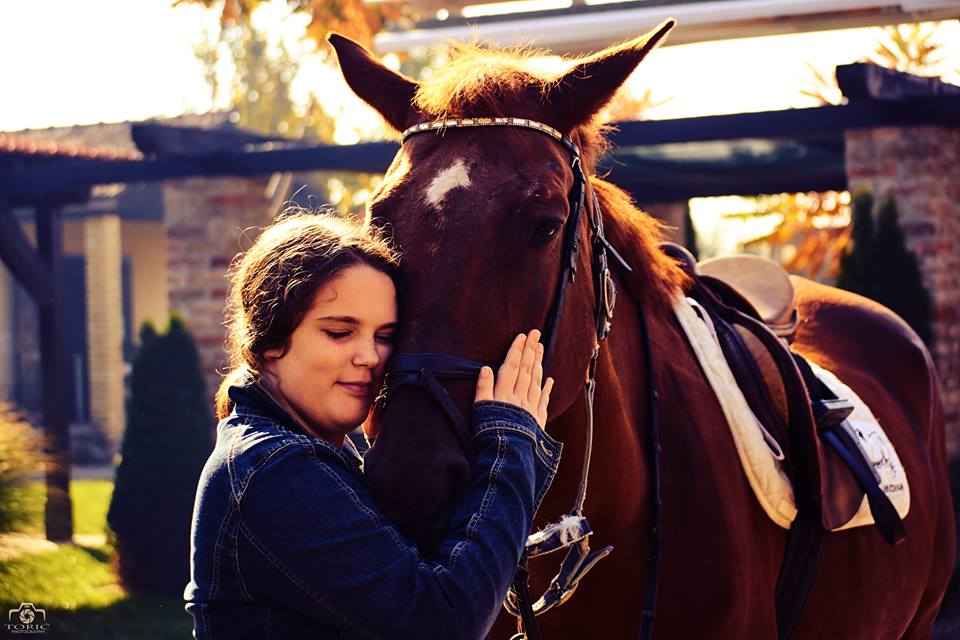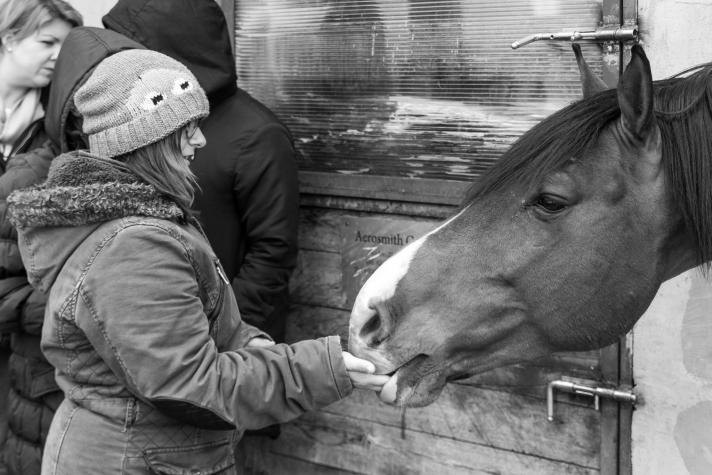
Topic(s) addressed
The project’s main objectives were to help disadvantaged students develop a sense of responsibility; enable them to perceive the human-animal bond and teach them responsible pet ownership; increase their concentration and decrease their anxieties; resolve learning-related issues; develop effective and lasting solutions towards decreasing problematic behaviour; help them resolve personal issues that may cause them psychological stress; and, assist them to play more active roles in society by developing their knowledge, abilities, and talents. Additionally, the project aimed to disseminate the results of this project at the EU level by introducing new ideas through its findings; exploring and describing best practices in education, preparing a guide of animal-assisted education practices and encourage other schools to utilise said practices; developing awareness towards general animal-assisted education practices; and, developing occupational experience and talent among our teachers in animal-aided therapy and practices. The use of new, non-formal methods in teaching and working with disabled students, such as animal-assisted therapy, links this project to the Teaching Award’s annual priority. The eTwinning platform was used as a tool for the sharing of materials and information among partners, and for both student communication and partner cooperation activities. The eTwinning platform was also used for the publication of all activities, materials, PowerPoint presentations, videos, results, and outputs (guideline, booklet, and e-books).
Target groups
The project’s main target group comprised of students, with anywhere from 30 to 60 students from each school having directly participated in animal-assisted practices (e.g. 35 student participants came from Josip Matos PS, given that the school’s entire student body consisted of only 60 students). In total, there were approximately 250 students who participated in the project, in addition to teachers and other school professionals, parents, and stakeholders from the local community. Furthermore, at least 4 individuals from each partner school (Hungary, Italy, The Republic of North Macedonia, and Turkey) were involved in each LTT activity, comprising teachers, psychologists, pedagogues, special education teachers, headmasters, and other school professionals.
Methodologies
The project focused on wellbeing (of both students and teachers), as well as awareness of civic life and the concept of responsibility, with the aim of recognising good practices and strategies across all participating institutions (schools), to increase self-esteem levels in partner schools, and to improve teachers’ confidence in the use of new methodologies. To that end, the project was designed so as to provide teachers with the skills and confidence to teach with pets by focusing on subject knowledge and pedagogy. In line with national laws on enhancing teaching and learning, our project focused primarily on primary education towards empowering children with the skills and competences necessary for everyday life. The primary purpose of LTT activities was to observe pet therapy lessons that were being delivered at the host school; focus on subject knowledge and pedagogy; monitor strategies and approaches being taught and delivered with regard to team teaching; and, provide opportunities for the modelling and trailing of good ideas, methods, and strategies through professional dialogue. Although students did not proceed to mobilities, they nevertheless participated in a number of animal-assisted practices and activities including animal adoption, the READ programme, and the production of pet toys from waste material. Through the use of novel methods in teaching, learning, and the development of new social skills, activities that were carried out resulted in an environment that was much more conducive among regular schools for the inclusion of students with special needs. Moreover, students and their family members were encouraged to adopt pets and to engage them in the development of their child’s various abilities, which assisted students with special needs in feeling more included not only within the school environment, but in the local community as well.
Environments
The project resulted in the development of positive attitudes towards pets, including the acquisition of higher-order thinking skills such as the ability to explore and reason, as well as other ways in which to communicate. All participating schools improved their respective teaching approaches, and delivered informal lessons through the use of pet therapy, with teachers having adopted more practical, fun, active, and efficient ways through which to facilitate their students’ learning and exploration, and their development of social concepts and skills. Local stakeholders such as the local press, municipality, psychologists, vets, universities, social service experts, and other related individuals and institutions helped in the dissemination of the project’s outputs into the broader community, while also having participated in a number of the project’s activities (vet visits, participation of municipality leaders in their respective country’s LTT activities, announcement of project news on municipalities’ web pages, etc.).
Teachers
Experts provided teachers with the professional experience they needed to facilitate their management of students who require special training or who perform poorly in class. Furthermore, teachers gained knowledge and skills in animal-assisted education through the use of LTT activities and the observation of best practices from various other countries. As a result of their participation in the project, teachers developed and released a number of publications at the EU level, including a guideline on assistance animals, a booklet on animal-assisted therapy, and an e-book on animal safety and animal care, with the aim of sharing and disseminating their experience, knowledge, methodologies, and best practices; bring together findings from different countries; develop occupational talents among teachers; and, to compare animal-assisted education practices across project partner schools.
Impact
Through human-animal interactions, students with special needs were able to develop their motor and physical skills, resulting in positive impacts such as their ability to learn about responsible pet ownership and to gain knowledge on animals; increase in their levels of self-esteem and self-confidence; increase in their ability to resolve problems; improved social and communication skills; increase in their motivation, attention span and decreased anxiety; improved literacy and related academic and behavioural skills (especially reading); and, the ability to build social skills and relationships with others – leading to more socially-appropriate behaviour. The project’s impacts on teachers on the other hand resulted in their heightened ability to manage students who require special training, or who suffer from psychopathologies, face learning difficulties and psychological problems, or have hyperactivity and concentration problems, as well as those who perform poorly in class. Furthermore, teachers were able to share and develop their knowledge base on animal-assisted education; increase their professionalism through cooperative measures; develop their ability to communicate in a foreign language and to share their experience across different platforms; and, observe education methods and techniques from different European countries to be applied in their own development and sharing of best practice examples. Participating schools also benefitted from the project as they gained international recognition through partnerships and cooperation (resulting in more professional personnel); developed relationships with families and increased families’ trust in the school’s potential; improved the school’s local image and prestige; and, inspired teachers who did not participate in the project to join upcoming Erasmus+ projects.
- Reference
- 2017-1-HR01-KA219-035417
- Project locations
- Croatia
- Project category
- Primary education
- Project year
- 2021
Stakeholders
Participants
İnönü İlkokulu
- Address
- Türkiye
Istituto Comprensivo Di Tavagnacco
- Address
- Italy
Primary school "Braka Miladinovci" Dobrusevo
- Address
- North Macedonia
Szent Imre Katolikus Általános Iskola és Jó Pásztor Óvoda
- Address
- Hungary

